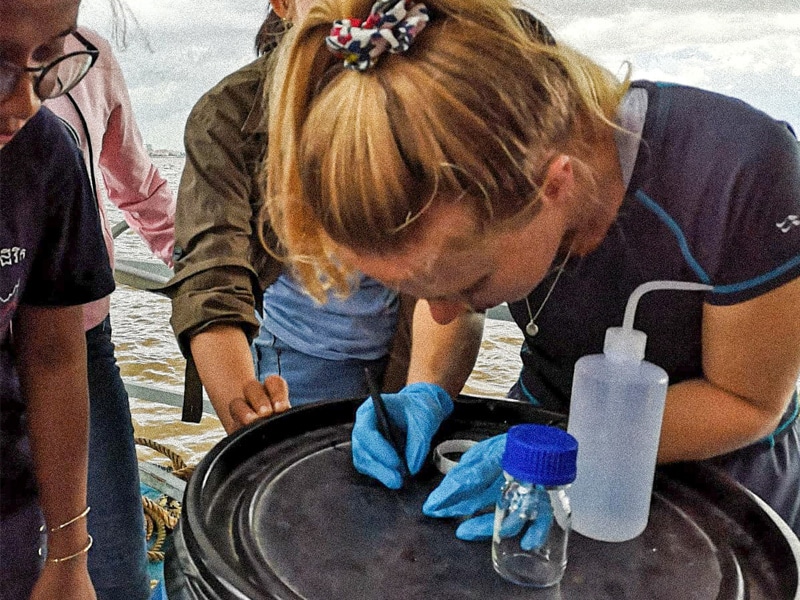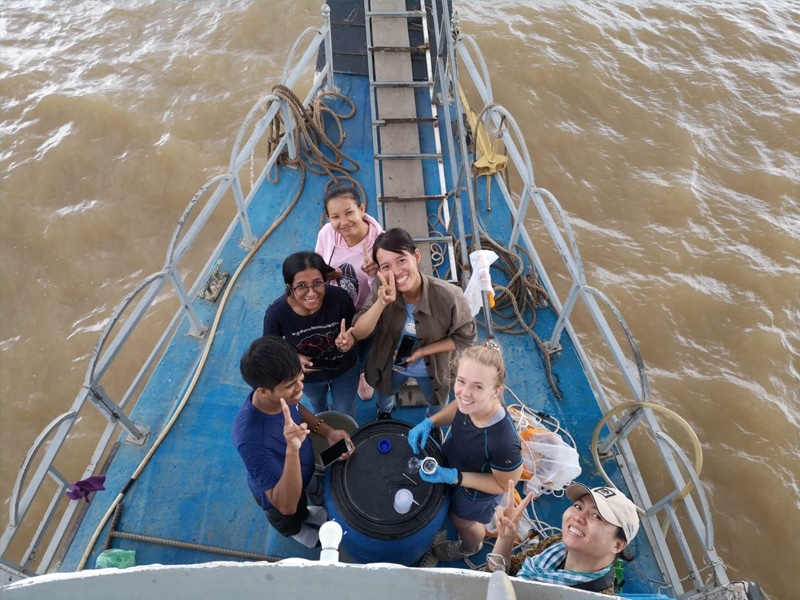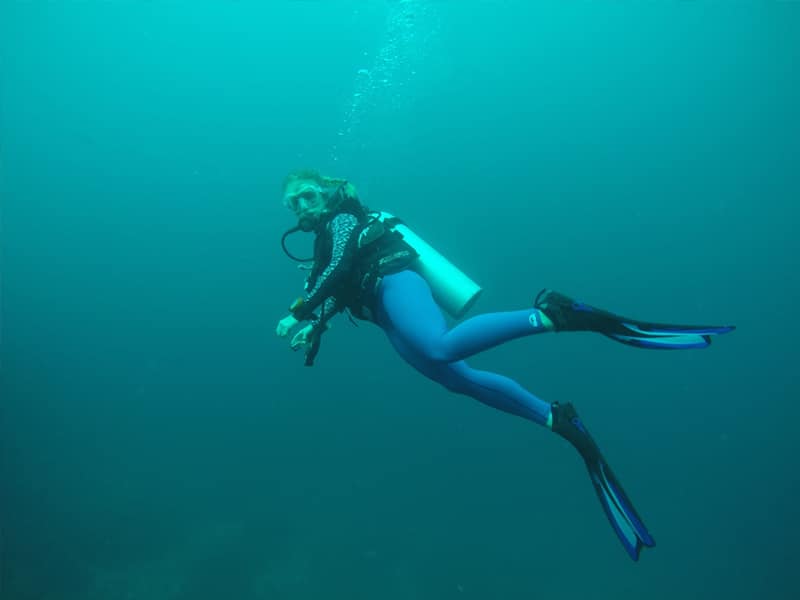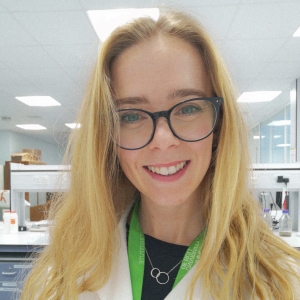Tell us a bit about yourself – what stage of your PhD are you in and what’s your project about?
I’m around half way through my PhD now which is crazy. I’m very lucky and get to do a lot of field work in Vietnam and Cambodia, as I am studying the transport of microplastics throughout the Mekong River and out to the South China Sea. This is part of the River of Plastic National Geographic Project. I’m trying to understand the different mechanisms that determine how microplastics are vertically stratified in the water column as this will help us predict how and where microplastics are transported and therefore inform effective mitigation measures. I studied as a Marine Biologist, so I am especially interesting in biological interactions such as ingestion but also how biofilm formation alters transport too. I will also be looking at how microplastic pollution discharged from the Mekong effects nearby coral reefs.
What does a typical day or week look like for you?
That’s a hard question as I don’t think any 2 days are ever the same for me! I’m going out in the field soon but also trying to start experiments and process samples in the lab. So at the moment I’m juggling admin for the field trip (Risk Assessments, booking flights etc.) and also trying to figure out the best way to process my samples through a lot of trial and error in the lab. I try and get into Uni early and do some sort of exercise around 3 or 4 as I find it helps me focus a lot better.



What’s one thing that you’ve enjoyed the most during your PhD?
I feel extremely lucky that I get to travel around the world, not just for field work but for conferences too! I’ve been to so many different places from San Francisco to Switzerland! I’ve always loved to travel and see different cultures. The flexibility is amazing too.
What’s been the most challenging part of it?
I’ve had several set-backs going into my second year which have been at no fault of my own but unavoidable. That can be so demotivating, I’ve often felt like I was making no process even though I was working all day. It’s especially difficult as your project is yours alone, there’s no point comparing your PhD progress to someone else’s as it’s completely different. What’s right for them might not be right for you. There’s a lot of just trusting the process and trusting yourself that it will work out in the end!



Where do you see yourself 5 years after completing your PhD?
I want to stay in research as I love being at the forefront of science, discovering new things! I would love to live abroad for a little bit so maybe a post-doc in Europe or Canada. I also really enjoy communicating my research to a wider audience, not just academics, so I hope I am more involved in that in some way. I have just been awarded a Early Career Grant with National Geographic so I am hoping that will lead to more things within Nat Geo too!
What’s one piece of advice that you’d offer students that are thinking of doing a PhD?
Make sure the topic is something you are absolutely passionate about. A PhD is a long process and if you don’t care that much about it then you are going to find it very difficult to stay motivated. Also remember you PhD topic wont define where you work for the rest of your life!
What makes your university a good place to study?

I love the people that I work with and the support is always there. Being part of the Energy and Environment Institute means that there are always lots of new projects happening and so many opportunities to get involved with.
What do you enjoy doing in your free time?
I love being outdoors as much as possible and doing some sort of exercise! So I try to go running, hiking and climbing whenever I can. I am also trying to explore the local area a lot more as there are so many beautiful places such as the Yorkshire coast and Dales. I also really enjoy writing my blog and searching for the best ways to be sustainable and use less plastic in my day to day life.
Want to know more about Freija?
Follow her on Twitter, Instagram and LinkedIn, and read her blog using the links below:

